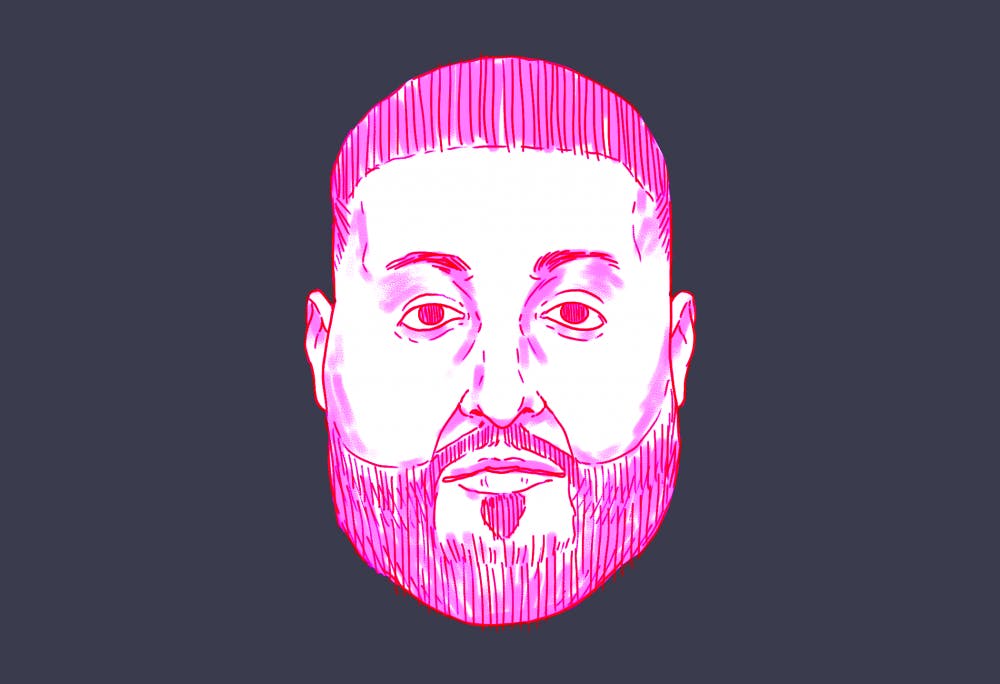To individuals newly acquainted with mainstream hip–hop, DJ Khaled’s presence can be somewhat confusing. He shows up at the beginnings of his songs, usually says his name and a slogan, and then lets the other artists take over. How does a man put out so many successful records with top artists while appearing to do so little himself? Well, “appearing” is the key word—Khaled does plenty, both with the music itself and in building his brand.
Let’s jump into a little backstory. Khaled has been many things in his life: record store employee, disc jockey, radio host, producer, record label executive, and Pokémon (just kidding about the last one, but he does say his name a lot). Like many others, part of his success can be attributed to a little luck: he became acquainted with Birdman and Lil Wayne of Cash Money Records by chance at a record store in the early 1990s. From this encounter and later gigs as a host of Miami radio stations, he was able to meet and build working relationships with a number of artists early in their careers. This is the first mark of his brilliance: Khaled was so good at networking in the rap and reggae industries that when the time came to release his first album in 2006, all of the musicians he befriended were more than willing to work together for the music he wanted to make—all of them being up–and–coming or established artists with huge followings.
The second aspect of Khaled’s talent is more straightforward—he is actually directly involved in the record production of significant portions of his music. As one peruses the credits of his ten studio albums, his name appears in the production credits of multiple tracks on each one. Additionally, as the lead artist, he still has final say on the instrumentals he doesn’t produce himself. To argue that Khaled isn’t involved in the making of his own songs is simply an incorrect assumption.
The last and most important part of Khaled’s genius? Sheer marketing skills. When one thinks of DJ Khaled, a number of merchandisable catchphrases come to mind from “we the best,” “I changed a lot,” and “another one,” to “bless up” and “major key.” He’s been masterful at using music videos and Snapchat to essentially create memes out of these various sayings and become an internet phenomenon himself, thereby maintaining a constant media presence. Additionally, as an executive producer, he ensures that the artists he brings together create highly marketable anthems. Case in point? A song like “All I Do is Win” has remained a pop culture mainstay since its release back in 2010 and is one of many tracks that utilize a slogan which eventually became enshrined on thousands of t–shirts, hats, and other apparel.
Khaled has released ten studio albums in the last 12 years, and announced an eleventh, Father of Asahd, on March 1. The lead single is “Top Off” featuring Beyoncé, Jay–Z, and Future, and has already reached 22 on the Billboard Hot 100. It appears that he’ll maintain his major key and continue suffering from success for the time being. Truthfully, all he seems to do is win.

